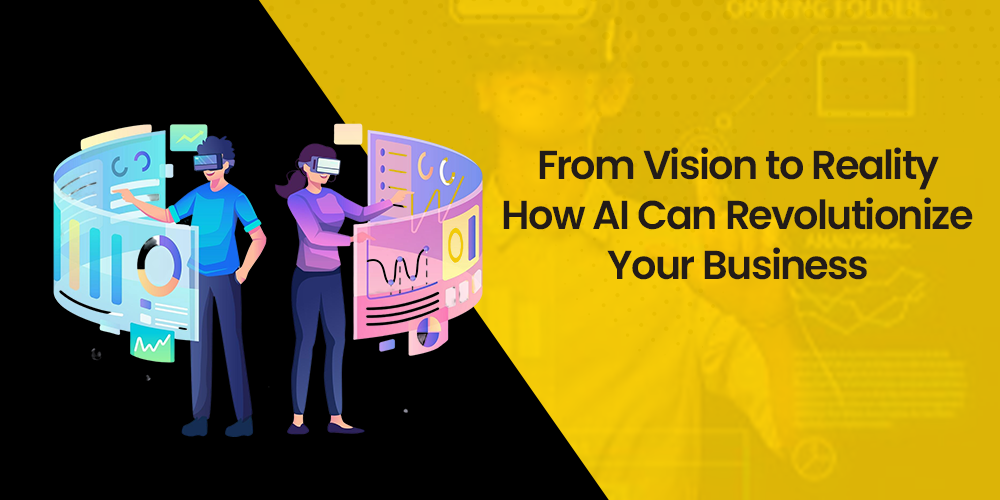Introduction
Artificial Intelligence (AI) has emerged as a transformative force in the business world, turning visions into reality by revolutionizing how companies operate, innovate, and interact with customers. AI's potential to automate processes, enhance decision-making, and drive innovation makes it an indispensable tool for businesses seeking to stay competitive in today's fast-paced digital landscape. This blog post explores how AI can revolutionize businesses, focusing on its applications, benefits, and practical steps for implementation.
What is AI?
AI refers to the development of computer systems that can perform tasks typically requiring human intelligence, such as learning, problem-solving, and decision-making. AI systems can analyze vast amounts of data, identify patterns, and make predictions or recommendations based on that data. This capability makes AI particularly useful in areas like customer service, supply chain management, and predictive analytics.
Applications of AI in Business
AI can be applied in various ways to revolutionize business operations:
-
Customer Service and Experience
AI-powered chatbots and virtual assistants enhance customer service by providing instant support, personalizing interactions, and improving response times. This not only boosts customer satisfaction but also reduces the workload on human customer service agents.
-
Predictive Analytics and Decision-Making
AI-driven predictive analytics helps businesses forecast market trends, anticipate customer needs, and make informed decisions based on data insights. This proactive approach enables companies to stay ahead of competitors and capitalize on emerging opportunities.
-
Supply Chain Optimization
AI can optimize supply chain operations by predicting demand, managing inventory levels, and streamlining logistics. This leads to reduced costs, improved delivery times, and enhanced operational efficiency.
-
Innovation and Product Development
AI accelerates innovation by analyzing customer feedback, identifying market gaps, and suggesting new product ideas. This helps businesses stay innovative and competitive in rapidly changing markets.
Benefits of AI for Businesses
The integration of AI into business operations offers several benefits:
-
Enhanced Efficiency: AI automates repetitive tasks, freeing up human resources for strategic and creative work.
-
Improved Decision-Making: AI provides data-driven insights that help businesses make informed decisions.
-
Innovation and Competitive Advantage: AI drives innovation by identifying new opportunities and enhancing existing processes.
Implementing AI Solutions
Implementing AI solutions involves several key steps:
-
Assess Current Operations: Identify areas where AI can add value, such as customer service or supply chain management.
-
Choose AI Solutions: Select AI tools and platforms that align with your business needs.
-
Train Staff: Provide training to ensure that employees are comfortable using AI-driven systems.
-
Monitor and Adapt: Continuously monitor AI performance and adapt strategies as needed.
Common Challenges and Solutions
While implementing AI, businesses often face challenges such as data quality issues and ethical concerns. To address these:
-
Data Quality: Ensure that data used for AI training is accurate and comprehensive to avoid biased outcomes.
-
Ethical Considerations: Implement policies to address ethical concerns, such as transparency in AI decision-making and privacy protection.
Conclusion
AI has the potential to revolutionize businesses by enhancing efficiency, driving innovation, and improving decision-making. By understanding AI's applications and benefits, businesses can leverage this technology to turn their visions into reality, achieving sustainable growth and competitiveness in the digital age.















